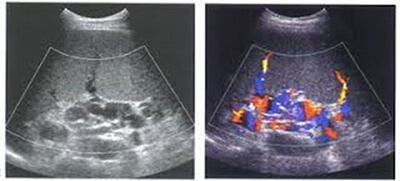Preparation
In order for an ultrasound of the spleen to be performed it is required to fast prior to the procedure. Fasting helps eliminate bowel gas within the abdomen and aids in better visualization of the spleen.
Benefit of Splenic Ultrasound
Having the spleen examined through ultrasound will help detect enlargement of the spleen that can be caused by a variety of disorders including infections, malignancies and more. Since the spleen produces antibodies and lymphocytes for our body’s natural immune defense system, it is important for patients with a history of abnormal blood tests, diagnosis of Ebstein Barr Virus (EBV), Cytomegalovirus (CMV), or a history of leukemia to obtain an ultrasound of the spleen.
Spleen normal size ultrasound
The mean spleen length, thickness, width and volume were 10.68±1.28 cm, 4.1±0.58 cm, 7.3±0.9 cm and 174.4±52.4 ml, respectively.



